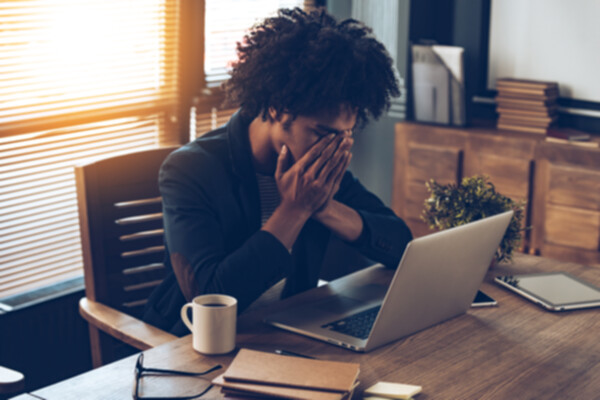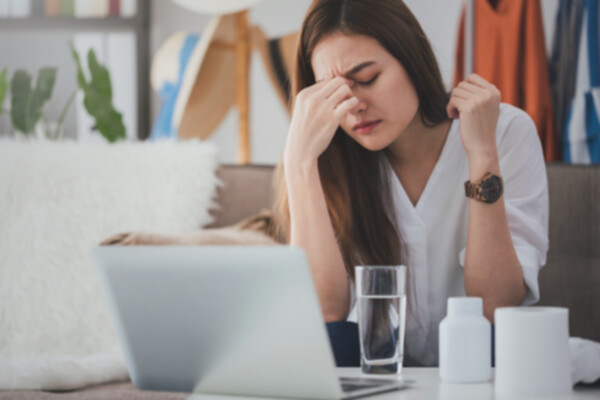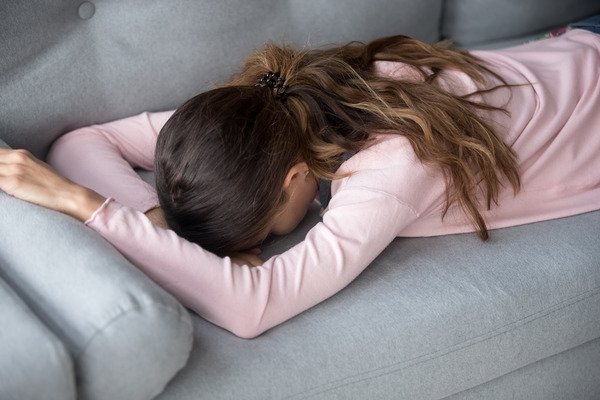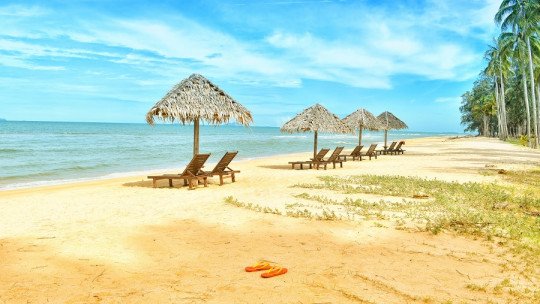Do you suffer when you return from your vacation? Do you think you may be going through so-called post-vacation stress? Discover the keys to detect it and overcome post-vacation syndrome.

The end of the holidays can cause an emotional crisis that leads us to suffer a certain apathy, nervousness and even anxiety about returning to routine. Although it is still a temporary sensation, which does not imply any type of condition, we can establish some guidelines to prevent or minimize the so-called post-vacation syndrome or post-vacation depression
What is post-vacation depression?
Syndrome post-vacation It arises when, after a period of rest, we cannot adapt to the rhythm of the usual routine of the year. Ensuring that this return to normality does not harm us mentally and physically has even become a challenge today.
During this post-holiday depression, it is common for small symptoms of nervousness, restlessness, stress, discomfort, reluctance and apathy to appear in the days before the start of the routine, and for these completely normal symptoms to subside after a few days. When these symptoms end up harming our daily lives, this is called post-vacation stress If this discomfort continues to affect us, post-vacation depression or post-vacation syndrome may arise. When reaching this limit, it is essential to consult a professional psychologist to get out of this situation.
Post-vacation depression: Symptoms
In many cases, psychologists can identify the postvacational syndrome through the following symptoms.
- Stress and anxiety: One of the most present symptoms of postvacational syndrome It’s stress and anxiety. In these cases, the person becomes easily distressed and suffers from stress at the slightest setback.
- Insomnia: Insomnia is another of the most common symptoms of this post-vacation discomfort.
- Lack of appetite or excessive appetite: Food and emotions in many cases are more than related. So much so that when a person suffers this post-travel depression can translate into a bad relationship with food.
- Fatigue: The post-vacation depression It also results in extreme fatigue in all day-to-day activities.
- Lack of interest or demotivation: Another of the most persistent symptoms of post-vacation stress It is the lack of interest in all aspects of the person who suffers from it.
- Myalgia or muscle pain: Muscle pain is also common to people who suffer from stress or anxiety. Therefore, the postvacational syndrome It can also translate into the presence of these pains in a persistent way.
Having many of these symptoms after a vacation period can be one of the signs of post-vacation depression If you identify with these signs, you should consult with a professional psychologist.

How to overcome post-vacation syndrome?
There are some exercises or activities with which you can face your routine again or return to your workplace without fear of suffering from this. post-vacation stress
- stay positive: Attitude is essential to face any type of situation. In the case of the post-vacation depression or post-vacation syndrome, maintaining this positive state can be the key to leaving behind all its symptoms and the discomfort of this condition. For this reason, and even though we are concerned about their reaction, it is advisable to maintain a positive and cheerful behavior both in the days before work starts and once it has started. This is essential to prevent us from feeling restless, sad and insecure due to returning to work.
- Good attitude: In line with what we mentioned in the previous section, it is essential that we show enthusiastic attention to the return from vacation. Try to visualize the excitement of meeting your coworkers again, even organizing a get-together with them, and encourage yourself to look good the first few days back at work. This positive attitude will be very necessary to keep anxiety at bay and the post-vacation stress at the same time we will avoid the apathy typical of these dates.
- Change the holiday chip: Everyone knows that during the holidays we make our schedules very flexible. We wake up late, have breakfast and lunch late, and bedtime is delayed until late at night. To prevent fatigue during the first days of work also making us feel worse, causing more stress and discomfort. Therefore, for avoid post-vacation syndrome It is good that we try to adapt our schedules gradually before starting the routine again.
- Enjoy the last days before the routine: If our work allows it, we can take advantage of the days before the start to plan visits or activities that we have not done during the summer. We can prepare desserts with our family, swim in the pool before it closes, go shopping or simply spend an afternoon at the neighborhood bowling alley, for example. The important thing is that we are entertained, since in this way we will reduce nervousness and anxiety. post-vacation stress typical of these days

- Create short-term goals: Setting short-term goals at work will help us motivate ourselves to face the return from vacation with dynamism. In this way we will have a goal that will motivate us and allow us to put aside this postvacational syndrome
- Prevents changes: Plan a few days before returning that we will have to change our schedules, diet and, in general, our habits. If we install all of this progressively in our lives, the beginning will not seem so sudden. The radical changes that occur during the holidays are one of the reasons why the post-vacation depression
- Continue with summer hobbies: Don’t forget to plan short-term leisure goals. It is important that once we start work/school activity we do not forget to dedicate ourselves to those little things that provide us with well-being (hanging out with friends, reading, playing, taking naps, etc.). Thanks to dedicating a few moments to our hobbies we can enjoy our return to our routine in the same way as a part of our vacation.
- Have a good diet: Establish good eating habits. Healthy food always helps you feel better and have enough energy to face new responsibilities. Returning to routine can be one of the perfect excuses to take care of our diet. Thanks to this small change we will be able to overcome the post-vacation depression
- Do exercise: Exercise will help us a lot in this new adaptation, giving us good moments and sensations, disconnecting from our occupations and making us feel better about ourselves.
It is important to say that this postvacational syndrome It usually lasts between a week and ten days. If the discomfort continues, it is advisable, if you wish, to ask a psychologist for help to be able to manage what is happening to us and rule out other difficulties in our lives.
Does post-vacation stress exist in children?
He post-vacation stress It’s not just an adult thing. The stress that comes with returning to routine after a long summer vacation can also affect children.
We must be attentive to these symptoms and not confuse them with a simple tantrum or a whim. Childhood stress can cause headaches, sadness and crying for no apparent reason, irritability or depression. Children who change schools or go from primary to secondary school are more likely to suffer from this disorder, according to psychologist and writer Alicia Banderas. In extreme cases they may suffer episodes of anxiety, in which case it is advisable to go to an expert.

How do I know if my child has post-vacation stress?
It is possible that in the days before the start of the course or during the first weeks of class, your children may feel more sensitive to changes, irritable or depressed for no reason. Some children may also experience headaches, stomachaches, and insomnia. The best way to detect and combat this disorder is to talk to your children, so that they can express what they feel. Many times the lack of information and doubts are the causes of the stress in children especially when they experience periods of change and new scenarios.
Why is it important to treat post-vacation syndrome?
For many, vacations mean freedom. Although this is a more than normalized thought, the reality is that our work should not be seen as something bad. This is why you can post-vacation stress arises or even lead to post-vacation depression. Going to a psychologist can be a way to see what is causing these feelings and discover why you shouldn’t feel that way. Work should be a space to develop yourself professionally and mentally.








